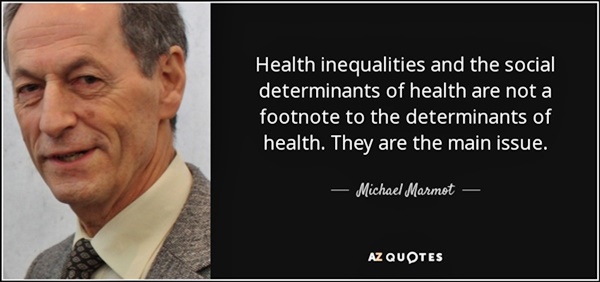I vaguely remember this person, probably from the school library under the dreaded Dot Hornibrook. He was class of 1961, I of 1959.

That’s the 5th XI, 1958. (I wasn’t a cricketer.) The team: Standing: A Parker, J Badger, L Gaffney, R Glover, B Cottell, R Fox, N Olbourne. Sitting: R James, M Marmot, G Waugh (Vice-Capt), A Evans (Capt), B Kelly, C Brown, A Grover.
Nowadays he is Sir Michael Gideon Marmot, FBA, FMedSci, FRCP (born 26 February 1945) Professor of Epidemiology and Public Health at University College London. Which is rather relevant at the moment.

He was interviewed on ABC Radio National by Dr Norman Swan last Monday.
Michael Marmot: There is an important lesson to learn. What the British government did in 2010, faced with large debt and deficit, said ‘we must have austerity, there is no alternative’, and it did great damage. Now, 10 years later faced with a pandemic, they threw all that so-called orthodoxy out the window and said ‘whatever it takes’. And it’s right that they did that. As we emerge from the pandemic, whatever you do, don’t go back to a fetish about debt and deficit, go forward to an important question; what kind of society do we want?
In the US, from around 1999, white men and women, middle-aged, have had an increase in so-called deaths of despair; poisonings due to opioids largely, suicide, and alcohol-related problems. We’ve been largely spared that. We might see more of it with a global recession, and that would be extremely worrying.
In 2010, the UK was facing an annual deficit 11% or 12% of GDP, and that was thought to be unsustainable. So the government did two things. It rolled back the state, it reduced public expenditure from 42% of GDP to 35%. And the second thing it did was to be remarkably regressive. It cut more from the poor than it did from the rich. And it didn’t work. If you look at the growth of incomes for employed people between 2007 and 2017, it was -5%. And the cuts to services, we cut public expenditure, we made poorer people worse off, and we made health inequalities worse. So we’ve got a clear message; don’t do that, that’s very bad for society, don’t do that.
So then you ask, well, what’s the alternative? The alternative is; faced with debt, spend more. What? Spend more? How can you be saying that? Do you know what the interest rate on debt is? Make the health and well-being of your population a priority, and as the economy recovers then you reduce the debt and the deficit, not when the country is depressed and you’re going to make people worse off. The notion is to improve the lives people are able to lead. That’s what we want to do, because if we do that, health will improve and health inequalities will diminish. Now, that should be the priority, and if that means tolerating debt and deficit when the interest rates are close to zero, then we tolerate it. And as the economy recovers, then we do something about the debt and the deficit. And that’s what this crisis has shown us. Faced with a crisis, you can rack up all the debts you like. Well, I would say that the underlying health inequalities in our society also represents a crisis. The problem is we just don’t see it as that.
Norman Swan: Professor Sir Michael Marmot is director of the Institute of Health Equity at the University College London.
Update: adding another scientist
This happy fellow I am proud to say I taught at SBHS — and coached in debating.

And here he is as a debater, on the left, in 1996. All those debaters are now among my Facebook friends.

These days Andrew Goodwin is a university research professor and professor of materials chemistry at the University of Oxford. I note he is now married to Jonathan. He is an LGBT academic.